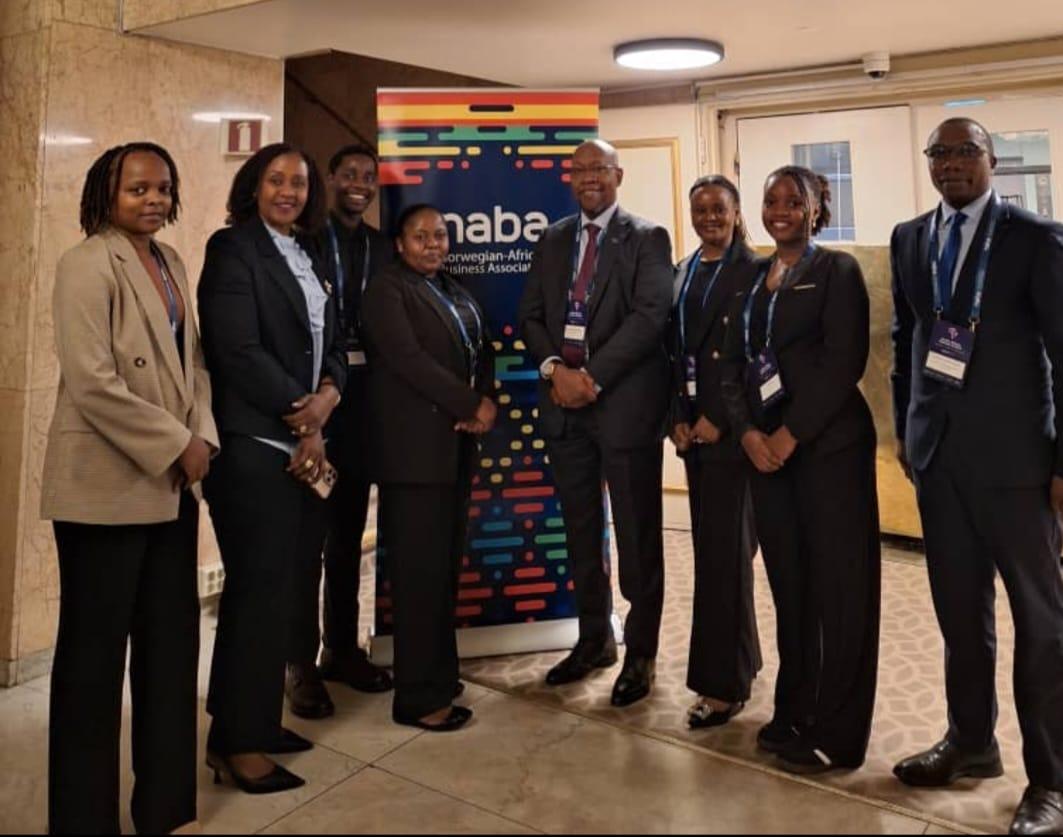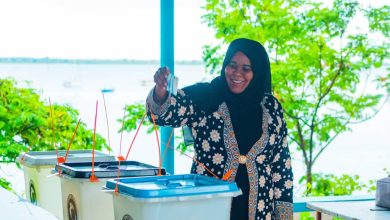Matinyi lead Tanzania’s quiet takeover of Nordic deals

SWEDEN: RECENTLY, in the grand yet crisp halls of the Grand Hotel in Oslo, Ambassador Mobhare Matinyi, Tanzania’s representative to Sweden (and by extension the Nordic and Baltic region), strode to the podium and didn’t just shake hands, he shook up expectations. He led the Tanzanian delegation at the 14th annual Nordic–African Business Summit, a high-powered match‑making event for governments, companies, investors and policy‑makers, combining agriculture, energy and infrastructure under one roof.
First, a bit of background, just to underscore how crucial Matinyi’s role is. He was appointed Ambassador to Sweden in early 2025, and in June 2025 formally presented his Letters of Credence to His Majesty King Carl XVI Gustaf in Stockholm. His mandate is more than protocol: he is tasked with economic diplomacy and that is trade, investment, tourism, education, infrastructure, energy, and climate change cooperation.
This means when Ambassador Matinyi walks into an international business summit, he is not just there for photo‑ops, he is carrying Tanzania’s flag, its trade potential, its offer of peace and stable government, and its business‑friendly reforms. His job is to convince Nordic investors that Tanzania is not just “another African opportunity” but a smart one.
What the summit was all about
The Nordic‑African Business Summit was co‑hosted by the Norwegian‑African Business Association (NABA) together with partners like Norfund, the Africa Finance Corporation, and the Norwegian Ministry of Foreign Affairs.
The themes for 2025 were clear: agricultural trade, energy, infrastructure. These are not fluffy topics-they are the spine of growth, especially for a country like Tanzania, where agriculture is still a major employer, energy access is improving (but with room to grow), and infrastructure is being upgraded fast.
At Oslo, the programme was dense: keynotes, roundtables, B2B meetings, deals being floated, networks being built.
Ambassador Matinyi pushed for action. With him came representatives of Tanzania’s private sector notably the horticultural sector (flowers, fruits and tea among them.). They were on a mission: find new overseas buyers. Break into Nordic markets. Show that Tanzania’s coffee, cashew nuts, flowers, spices, and fruit can compete in quality and reliability.
Then in energy clean‑technology talks: preliminary discussions with big companies in clean energy—SCATEC, RENERGY, CAMBI about partnerships. Whether it is clean power generation, waste‑to‑energy, efficient technologies, or carbon reduction, Tanzania is saying: let us do it together.
Peace, stability, and the Business Climate: Why Tanzania is more than a promise
Here is where Tanzania has an edge: stable governance, improving ease of business, clear diplomatic relationships. Under President Samia Suluhu Hassan, Tanzania has made consistent moves in liberalising aspects of the economy, reforming institutions, and making trade and investment easier.
Also, Tanzania’s diplomatic posture is almost like that of a good host: friendly, open, welcoming, but also principled. Peace is not just the absence of conflict, it is an environment where contracts are respected, where legal frameworks are being improved, where foreign investors can feel secure. Ambassador Matinyi, in Stockholm, has emphasized cooperation in sectors ranging from energy, mining, manufacturing, tourism, education, to climate change. These are not spinner slogans-they are areas where laws, regulations, policy are being put in place to attract investment.
Tanzania is also building infrastructure that is to say railways, roads, ports with the explicit goal of not just connecting places, but connecting people, markets, and value. One recent project launched was the standard gauge railway between Dar es Salaam and Dodoma, which improves domestic connectivity and promises spillover benefits for sectors like tourism, agriculture, trade.
Here are some “value propositions” that Matinyi and his team, as well as potential investors, are cool to talk about as truths verified by actions and policy, not just pleasant speeches:
Agriculture with a plug to value addition
Tanzanian agriculture is not just about raw exports anymore. There is a push for processing, packaging, quality control. If you want tea, spices, cashews or fruit that living rooms in Oslo or Stockholm will love, Tanzania has them. And land, labour, and natural conditions are favourable.
Norway, Sweden, Finland and the likes often lead the world in clean energy. Tanzania has vast potential in solar, wind, hydro, and bioenergy, especially for rural electrification. If investors bring capital and technology, there’s a win‑win.

Railways, ports, roads, smart irrigation, power transmission—all of these are in progress or planned in Tanzania. With government focus, plus foreign partners, these create enormous multiplier effects.
Tanzania has mineral wealth. But more than mere extraction, the opportunity is in value chains: smelting, refining, small‑scale mining supported by resilient infrastructure, regulatory clarity, and attention to environmental and social governance.
Through economic diplomacy, Tanzania is making its agenda clear. The diaspora is invited to invest. International partners are welcomed. Peace and stability (both political and social) make risk lower. Ambassador Matinyi is serving as a bridge—understanding both the language of Nordic diplomacy and of Tanzanian economic need.
Let’s underscore what Ambassador Matinyi brings to the table
Multiple accreditation: Though based in Sweden, he represents Tanzania not just there but in other Nordic and Baltic countries. He is effectively Tanzania’s face in a region that believes in green tech, sustainability, corporate social responsibility.
Background and credibility: Before becoming ambassador, Matinyi was Tanzania’s Chief Government Spokesperson. That means he understands policy, media, public perception. He isn’t a rookie diplomat-he knows infrastructure of government, law, communication.
Proactive engagement: He holds meetings not only with diplomats but with companies in Sweden and Nordic region, visits institutions, discusses tech (e.g., telecommunications, digital policy etc.). Not just ceremonial.
Tied to national agenda: He is not operating in isolation. His efforts align with President Samia’s reform agenda: ease of doing business, boosting exports, attracting foreign direct investment, environmental responsibility. It gives investors confidence.
No place on Earth is perfect; Tanzania is no exception. Issues like regulatory red tape, capacity constraints, infrastructure bottlenecks in rural areas, occasional foreign exchange policy unpredictability are things investors mention. But the government is aware—and reforms are underway. Also, the more foreign partners and investors join in, the more scrutiny and standards improve, and the faster weak links get reinforced.
So, what was achieved in Oslo ?
New leads: Tanzanian exporters got exposure to Nordic buyers. They began conversations that could lead to contracts for high quality coffee, tea, fruits, spices and florals.
Energy deals in embryo: Clean energy firms like SCATEC, RENERGY, CAMBI showed interest in collaborations or at least study partnerships. These may lead to pilot projects, technology transfer, financing.
Infrastructure conversations: The possibility of stronger links in value chains—even in mining—was explored, especially small‑scale mining, with calls for infrastructure that supports them.
Diplomatic messaging: Tangible message to the world: Tanzania is open for business. Not just rhetorically, but practically. Ambassador Matinyi used the platform well.
If you are an investor, here are some things you should not ignore about Tanzania (and why ambassadors like Matinyi are essential in making them visible): A large, young population: consumers, workers, innovators; Natural resources: fertile land, agricultural diversity (coffee, tea, spices, tropical fruits), minerals; Geographical position: East Africa, with access to ports, potential regional hubs; Reform momentum: infrastructure (rail, roads, ports), business regulations, better energy supply, renewable energy push; Political stability: relative peace, improving legal frameworks, increasing transparency; Supportive diplomacy: ambassadors who fight for the country abroad, build networks, attract investors—not just ceremonies.
If you are a Nordic investor, or someone in the diaspora, or a trade buyer, or a climate‑focused fund, the message from Oslo is that Tanzania is stepping up in a serious way. The government, through actors like Ambassador Matinyi, is putting the pieces in place: diplomacy, regulatory reform, infrastructure, energy, agriculture, stability.
Ambassador Matinyi at the helm outside the country is not just a diplomat in a suit, he is Tanzania’s business development envoy, its brand ambassador for investment, and its connection point to global clean energy and trade agendas. He shows the rest of the world that Tanzania is not waiting for others to bring growth it is leading it, inviting you to be part of it.





